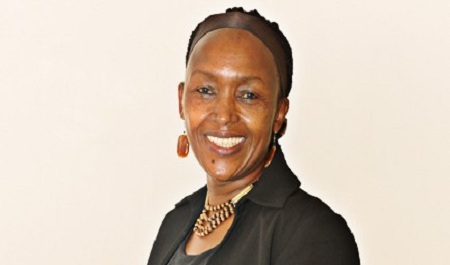
Role of Mother Tongue Education: Chapter Contribution, Dr. Margaret W. Njeru
Book Chapter Title: Teach Our Children in Their Mother Tongue
Book Title: Kenya after 50: Reconfiguring Education, Gender, and Policy (African Histories and Modernities)
Editors: Koster, M.M., Kithinji, M.M. & Rotich, J.P.
Publisher Detail: New York: Palgrave Macmillan (1st edition)
Year of Publication: 2016Summary of the Chapter
In this chapter, the author examines the educational language policy in Kenya, tracing it back to the colonial period when the English language was introduced in Kenya. While there were no firm language policies throughout the colonial period, with missionaries advocating for the use of mother tongues in schools to help them spread Christianity and the colonial administration preferring to provide some limited English to the African students for purposes of securing cheap labour, policies made during this period had a great impact on the post-independence policies. At independence in 1963, the Kenyan government, like many other former colonial countries, adopted the former colonial language, English, to be its official language. The position of English as a medium of instruction was further entrenched through a strong recommendation by the Ominde Commission (1965) which claimed that Kenyan children would learn better through English. English has therefore been used as the main medium of instruction and examination in Kenya, even though the education language policy states that learning in the first three years of primary school should be in the child’s mother tongue.The chapter continues to note that current research has consistently showed that children learn more effectively when concepts are introduced to them in a language they already understand. Most children in Kenya, especially those in rural areas, join school when they have already acquired their mother tongues, e.g. Dholuo, Kikuyu, Kikamba, etc. On entering school, however, many of these children find themselves in the precarious situation whereby they are informed that they can no longer use their mother tongues in the school, and must from then henceforth use English (see Ngugi, 1986). While no conclusive evidence has been established to show the consequences of the educational language policy in Kenya, there are high chances that it is linked to poor academic performance as well as high school drop-out rates.The chapter also observes that efforts to use the mother tongues in the education sector in Kenya have been faced with various challenges, including the lack of qualified teachers as well as relevant teaching materials. Moreover, many parents have protested the use of their mother tongues to teach their children, claiming that their children would be ‘left behind’ by those who learn in English from Standard 1.The chapter argues that all stakeholders, including parents and their children, must be educated on the role of the child’s mother tongue in learning. While English undoubtedly plays a major role in Kenya, children must be offered a smooth linguistic transition from their home language to any other that they acquire in school. A well implemented transitional bilingual educational system would benefit a majority of Kenyan children, at both academic as well as social levels.
To read the full chapter, please feel free to ask for a soft copy from Dr. Njeru at mwnjeru@riarauniversity.ac.ke
Book availability:
Kenya after 50: Reconfiguring Education, Gender, and Policy is the second Volume after Kenya After 50: Reconfiguring Historical, political, and Policy Milestones, both published under the African Histories and Modernities series.
The two Volumes can be viewed on Amazon under these two links:
Link 2A review by Dr. Siundu, Senior lecturer of Literature at the University of Nairobi, of the two volumes was carried in the Saturday Nation (April 9, 2016). The review is available online on the following link:
Nation Review
TRIVIA: WHAT IS THE POPULATION OF KENYANS THAT SPEAK ENGLISH FLUENTLY? (Send your answer to mwnjeru@riarauniversity.ac.ke )
References
Ngugi wa Thiong’o (1986). Decolonizing the Mind (Studies in African Literature). New Hampshire: Heinemann
Ominde, S. H. (1964). Kenya Education Commission Report. Republic of Kenya. Nairobi: Government Printers.



